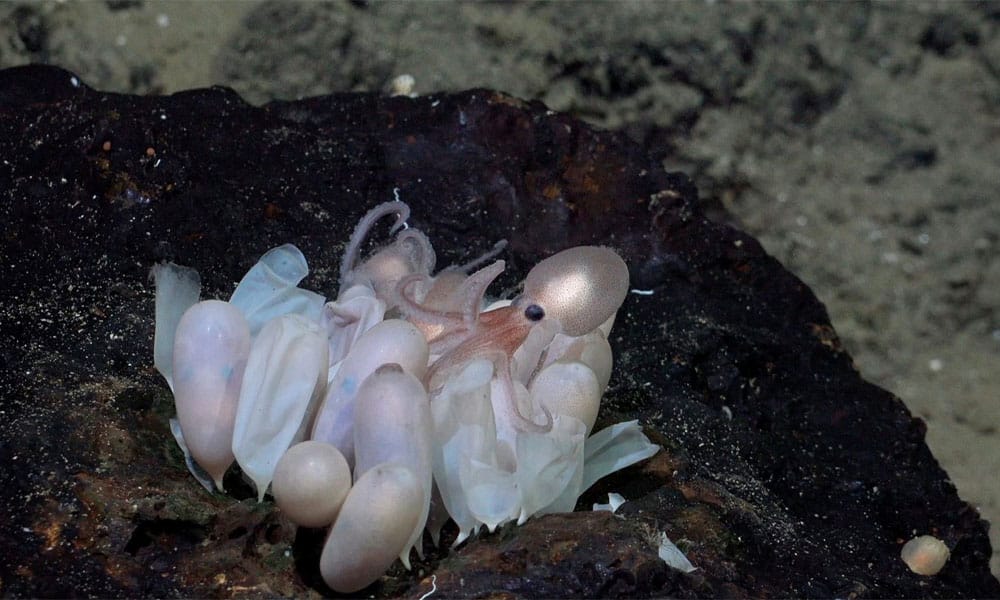In a groundbreaking series of expeditions, scientists aboard the Schmidt Ocean Institute’s research vessel R/V Falkor (Too) have unveiled a fascinating underwater world off the coast of Costa Rica. These ventures, conducted in 2023, revealed the existence of four previously unknown octopus species.
The discovery unfolded around hydrothermal vents along Costa Rica’s Pacific coast, where two octopus nurseries were found during the two expeditions. Dr. Beth Orcutt of the Bigelow Laboratory for Ocean Sciences, co-leading the missions, expressed gratitude for the findings, emphasizing the revelation of not only new hydrothermal vents but also the confirmation of octopus nurseries and a diverse array of marine life.
A notable inhabitant of one such hydrothermal vent was the Golden Octopus, aptly named after the unofficial moniker of its discovery site. This species, observed with its eggs in the warm waters, offers a glimpse into the reproductive behaviors of these newly identified creatures.
The hydrothermal vents themselves, numbering three in the region and spanning 10 to 30 nautical miles apart, exhibited distinct temperatures and chemical compositions, indicating varied geological formations.
The intrigue extended beyond the hydrothermal vents, as three additional octopus species were uncovered in the deep sea, away from these thermal hotspots. Notably, the researchers stumbled upon a deep-sea ray nursery, affectionately dubbed Skate Park, adding to the marvels found in Costa Rican waters.
The scientific endeavors were not limited to discovery alone, as over 160 specimens collected during the December expedition will find a home in the Zoology Museum of the University of Costa Rica. This marks a departure from the norm, as all biological specimens will remain within the country rather than being shipped abroad.
The Schmidt Ocean Institute highlights the significance of this decision, emphasizing that it will grant local scientists and students easier access to these invaluable samples, contributing to informed seafloor management strategies in the region.
Dr. Jorge Cortés of the University of Costa Rica, co-director of the expeditions, lauded the enduring impact of the R/V Falkor (Too) expeditions on the nation’s understanding of the Pacific deep sea.
He expressed hope that the newfound awareness generated by these discoveries would translate into policies aimed at safeguarding Costa Rica’s deep-sea ecosystems for generations to come.






